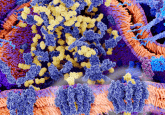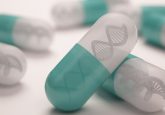New antibody detection technology could lead to early disease diagnosis

A group of researchers based in the United States (CA) have discovered a simple technique that could lead to faster and earlier diagnosis of cancer and other critical illnesses.
Utilizing standard PCR protocols, the team developed an ultrasensitive method for detecting antibodies at very low concentrations. The team’s discovery was recently published in ACS Central Science.
Antibodies are widely used as biomarkers for diagnosis of many diseases, including cancers. However, during early stages of disease antibody production is very low and current detection methods are not sensitive enough to detect them.
Lead author of the study, Carolyn R. Bertozzi (Stanford University, CA, USA), and colleagues set out to develop a more accessible approach for detecting low concentrations of antibodies from patient blood samples.
The novel method, termed antibody detection by agglutination-PCR, or ADAP, exhibited sensitivity in detecting thyroid cancer antibodies from patient samples 1000x greater than currently recommended radioimmunoassays.
In ADAP, antibodies firmly bind to synthetic antigen-DNA conjugates allowing ligation of DNA strands. This is followed by amplification and quantification of the sample by qPCR. The ADAP procedure enabled the team of researchers to detect very small concentrations of antibodies: zepto- to attomoles in 2μL of sample.
The team also demonstrated ADAP’s diverse ability to detect multiple antibodies in a single experiment.
Commenting on their recent work, the team wrote that the new method: “creates new opportunity for the discovery and detection of antibody biomarkers.”
Diagnosing cancer in its early stages has been a long-standing challenge for both clinicians and medical researchers. ADAP provides a potential opportunity to detect cancer in its early stages and to influence patient treatment and outcomes.
Sources: American Chemical Society press release; Tsai C, Robinson PV, Spencer CA, Bertozzi, CR. Ultrasensitive Antibody Detection by Agglutination-PCR (ADAP). ACS Central Science doi: 10.1021/acscentsci.5b00340 (2016).






